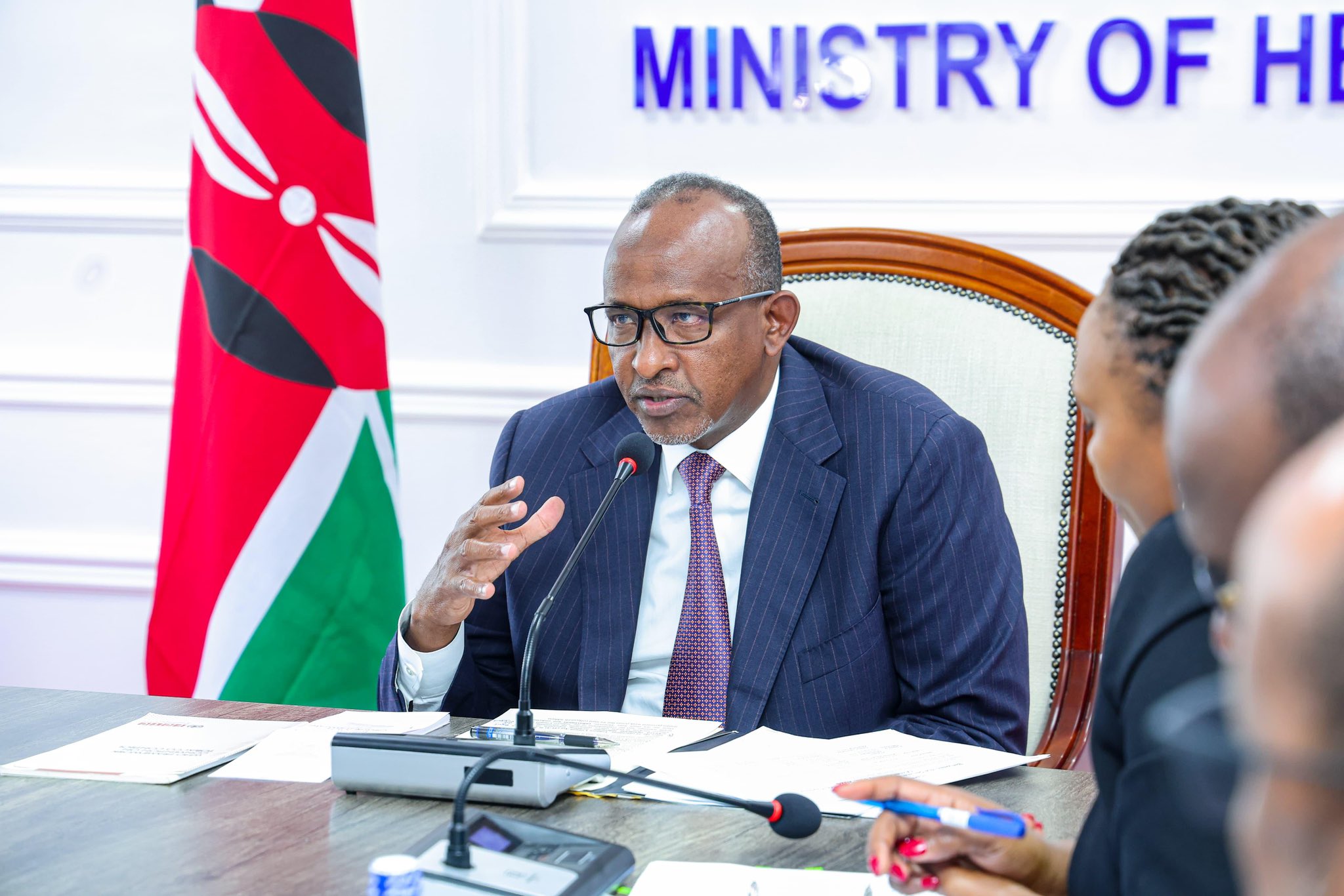
 Health CS Aden Duale chairs a meeting with a delegation from the World Health Organization (WHO) on June 10, 2025. /ADEN DUALE/X
Health CS Aden Duale chairs a meeting with a delegation from the World Health Organization (WHO) on June 10, 2025. /ADEN DUALE/X
In a decisive step toward Universal Health Coverage, the government has rolled out special health cards for teenage mothers, aiming to remove long-standing barriers that deny them essential care.
Health Cabinet Secretary Aden Duale announced the initiative on Saturday, saying it will “ensure young mothers, who frequently face stigma and neglect, receive uninterrupted antenatal, postnatal, immunisation, family planning and psychosocial support.”
The intervention, which complements existing social protection schemes like the Linda Jamii programme, is tailored to formally integrate adolescent mothers into the healthcare system.
According to Duale, this inclusive model "signals a shift from reactive to inclusive healthcare, where everyone, especially vulnerable teens, are incorporated into our healthcare systems.”
Kenya has long grappled with high rates of teenage pregnancy.
Data from the Kenya Demographic and Health Survey (KDHS) 2022 indicates that one in six girls aged 15–19 has either given birth or is pregnant with their first child.
The problem is particularly acute in counties like Narok, Homa Bay, and Tana River, where teenage pregnancy rates are above the national average.
The social and economic consequences for young mothers are severe.
Many drop out of school, face social ostracisation, and are often locked out of formal healthcare due to stigma or lack of financial means.
A 2023 report by the National Council for Population and Development (NCPD) noted that adolescent pregnancies contribute significantly to school dropouts, perpetuating a cycle of poverty and vulnerability.
“By formally integrating them into the health system, we are not only reducing maternal risks but also addressing school dropouts and intergenerational poverty,” Duale said.
He stressed that this effort aligns with Sustainable Development Goal 3, which advocates for healthy lives and well-being for all.
The health cards are expected to improve access to timely medical attention, especially in rural and marginalised areas where adolescent mothers are often left behind.
The Ministry of Health has partnered with county governments and community health promoters to facilitate registration and ensure follow-up care.
The government’s push comes at a critical time, as the country seeks to operationalise UHC under the recently launched Social Health Authority.
This card-based programme not only ensures medical care but also provides psychosocial support, which experts say is essential in helping teenage mothers rebuild confidence and reintegrate into school or vocational training.
Duale concluded, “This initiative is more than a card — it’s a promise that no one, regardless of age or circumstance, will be left behind.”
As Kenya takes this bold step, there is hope that thousands of teenage mothers will find not just healthcare, but dignity, opportunity and a second chance at life.
















